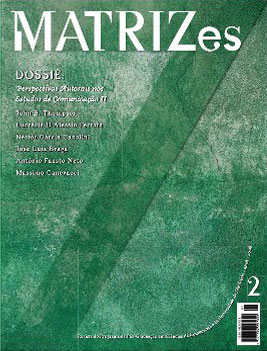Tupi or not tupi The dialectics of “nobodyness” in Brazilian cinema
DOI:
https://doi.org/10.11606/issn.1982-8160.v1i2p193-206Keywords:
Brazilian cinema, anthropophagi, nobodynessAbstract
Th is article analyzes Joaquim Pedro de Andrade fi lm’s Macunaíma (1969) and Garrincha, alegria do povo (1963). Oswald de Andrade’s anthropophagic manifest (1928) and the conception of “nobodyness”, notion that is the opposite of identity, as written by Darcy Ribeiro in his book O povo brasileiro (1995), guide the interpretation of these fi lms. Both concepts are critical about the ontological or essentialist problem that seems to escape whenever we try to apprehend in a totality, the multiplicity that characterizes the Brazilian society. Joaquim Pedro de Andrade contributes for the enlargement of this vision, by recreating the characters or the lack of it, (de)composing the portrait of the Brazilian “nobodyness”.Downloads
Download data is not yet available.
Downloads
Published
2008-04-15
Issue
Section
Em Pauta/Agenda
License
Authors who publish in this journal agree to the following terms:
- Authors retain the copyright and grant the journal the right to first publication, with the work simultaneously licensed under the Creative Commons Attribution License (CC BY-NC-SA 4.0) which allows sharing of the work with acknowledgment of authorship and initial publication in this journal for non-commercial purposes.
- Authors are authorized to assume additional contracts separately, for non-exclusive distribution of the version of the work published in this journal (eg, publishing in institutional repository or as a book chapter), with acknowledgment of authorship and initial publication in this journal.
How to Cite
Mota, M. R. P. (2008). Tupi or not tupi The dialectics of “nobodyness” in Brazilian cinema. MATRIZes, 1(2), 193-206. https://doi.org/10.11606/issn.1982-8160.v1i2p193-206






















